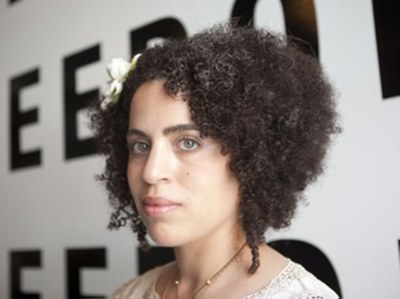Mapping the Humanities Q&A
 Kiki Petrosino
Kiki Petrosino
Department of English
2016-17 Commonwealth Center for the Humanities & Society Faculty Fellow
What is your role as a CCHS Faculty Fellow?
I am writing a book of poetry called White Blood: a Lyric. The book explores the complex concept of mixed-race identity in the Upper South, essentially from Monticello to the Falls of the Ohio. I am also designing a new course called "The Literature of Lewis & Clark," which I hope to teach sometime in the 2017-18.
What is the role, and importance, of an intellectual community such as this in A&S? As scholars, and as part of the wider university community?
As Louisvillians, we are all part of a dynamic community of scholars, artists, chefs, musicians, historians, teachers, and craftspeople. This is a city of makers. The Faculty Fellows Program is a chance for us to share our work with the wider university community and with the public, and not just the final products (books, etc.). As my project takes shape, I'm excited to interact with other members of the metro Louisville community who share my enthusiasm for local and regional history, for storytelling, and for language itself.
There are a variety of interests and academic disciplines represented in the program. How will working among such a diverse group elevate your own research? What are the benefits of participating in a community of diverse scholars such as this?
There are many benefits. I've already been able to "compare notes" and seek advice on research techniques from the historian in our group. Though I'm already a published author, my current project is the first that has required extensive research in archives and historical societies. I have valued the chance to gain practical advice on how to do it – where to go, what sorts of questions to ask, and so forth.
What does "mapping the humanities" mean to you?
For me, it means locating my voice as an African American poet within the physical and cultural landscape of the Upper South. My book begins by examining my ancestral roots in central Virginia, and then it branches into my current life as a resident of Louisville, Kentucky. This Commonwealth was part of Virginia until the 1790s. Just a decade later, Thomas Jefferson sent Meriwether Lewis and (Louisville landowner) William Clark to the west from their launching point near Louisville.
Often, it feels that I've lived my whole life from within Jefferson's vision of American democracy; that I'm always living in a room of Monticello, as it were. And while Jefferson's vision often excluded or silenced the voices of women and people of color, our contemporary Commonwealth is a rich and diverse place that I'm proud to call home.
What inspired/s you to work in your particular academic field?
I've always been interested in the moments where public and private histories collide. The art of poetry, with the multiplicity of forms available to it, with its flexibility and music, is the perfect instrument with which to explore these complex intersections.
I have been fortunate to be a member of the College of Arts & Sciences English Department, where we foster cross-disciplinary collaboration and conversation. I'm grateful to the College for this opportunity to make more connections this year.
